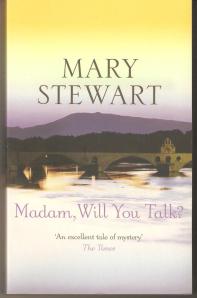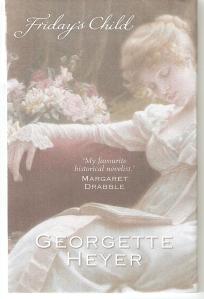The Frivol, the Geek and Writers’ Time
Units of measurement are wondrous things. Someone – it may have been a Cambridge Professor of Physiology, W A H Rushton FRS; or Isaac Asimov; or even Willie Rushton, Great Man of Thought that he was – proposed a unit of pulchritude. If Helen’s faced launched a thousand ships, argued this philosopher, then we can measure how beautiful a woman is by the number of ships her face would launch. One boat launched equals one milliHelen.
Whoever he may have been, this chap steps effortlessly into the Gallery of Frivols. Welcome, friend!
Writers need a unit of measurement, too.
Anthony Trollope, who invented letter boxes and ran a large part of the Post Office, as well as being the author of the Barsetshire and Palliser novels and much else besides (and my very favourite Victorian) wrote for three hours every day. He measured his output. (Don’t we all?) Only he did it not by time or by number of words written. He did both.
As Post Office Grandee, he went all over the country in those stately Victorian steam trains and, in order not to waste time, had a portable desk made and wrote while he chugged along. When at home, he got up at half past five and wrote for three hours. And he wrote at the rate of 250 words every quarter of an hour. Apparently he kept a diary recording how many pages he’d done every day.
Now you make think this is a bit obsessive. Maybe even a touch of the Geek? Imagine what that man could have done with a fully powered MacBook Pro. But by golly, it got the work done.
Because I, too, need to get the work done I propose:
let one Trollope be 1,000 words per hour, a semiTrollope would be 1,000 words in 2 hours; a demisemiTrollope would be 1,000 words in 4 hours. So if you write 1,000 words a day, as recommended by Graham Green and Stephen King both, you could do it at the rate of one Trollope, two semiTrollopes, fourdemisemiTrollopes . . .or even eight semidemisemiTrollopes, if it takes you the whole working day.
Alternatively, a deciTrollope would be 100 words in an hour.
Writers should always have targets. I foresee hours of happy calculation to achieve mine.
Stir my tastebuds, melt my heart
I’m not sure that the way to a man’s heart is through his stomach but it surely is a tried and tested route into a woman’s. As every discerning reader knows.
My good friend and fabulous RITA and RUBY winning author, Marion Lennox, is blogging for the first time, and musing on food and royals in romantic fiction at www.iheartpresents.com She says: ‘You know, writing’s wonderful– I can just close my eyes and think what would I most like to eat, and there it is, on the page. So my would-be princess can indulge in French champagne and lobster patties and truffles and caviar and strawberries tasting of the sun….’
So true. And your readers can indulge right along with her.
I always remember the first Mary Stewart I read, Madam, Will You Talk.

Cover for the new edition by Hodder & Stoughton 2005
For two days the heroine runs away from a dangerous man who she thinks is a villian. And then, suddenly, he is beside her on the quay in Marseilles and there is nowhere left to run . . .
So what does he do?
He takes her to dinner. (That’s my kind of dangerous man.)
And what a dinner.
I remember still those exquisite fluted silver dishes, each with its load of dainty colours . . . there were anchovies and tiny gleaming silver fish in red sauce, and savoury butter in curled strips of fresh lettuce; there were caviare and tomato and olives green and black, and small golden pink mushrooms and cresses and beans. The waiter heaped my plate, and filled another glass with white wine. I drank half a glassful without a word, and began to eat. I was conscious of Richard Byron’s eyes on me, but he did not speak.
The waiters hovered beside us, the courses came, delicious and appetizing, and the empty plates vanished as if by magic. I remember red mullet, done somehow with lemons, and a succulent golden-brown fowl bursting with truffles and flanked by tiny peas, then a froth of ice and whipped cream dashed with kirsch, and the fine smooth caress of the wine through it all. Then, finally, apricots and big black grapes, and coffee.
Ah, apricocks and dewberries. They never fail.
But truly, isn’t that the most luscious, sensual scene? Aren’t you there, mouth watering? Haven’t you already decided that the provider of this voluptuous feast has to be the hero?
How much more powerful must it have been in 1955, when the book was first published. Many foods were still rationed in Britain. It was only ten years since the end of the War, with its austerity and British Restaurants. For the 1950s English woman, this idyllic meal (to say nothing of the plates that disappear as if by magic) must have felt as good as going to Cinderella’s ball herself.
And it still does the business today – for me and, I bet, for thousands of others. Which is why Hodder printed a new edition fifty years after that first publication.
Scrummy
The Alpha, The Frivol and the Kindly Young Man
Oh, I love Freddy in Cotillion. He’s so kind. I don’t think many of Georgette Heyer’s heroes are. He’s not just kind to Kitty,either; he’s pretty good to his sisters and I love his relationship with his parents.
But I’m not sure I’d call Freddy a Frivol, exactly. He’s not mischievous. Though I agree with Liz, Jan, Evonne and Jane, there are a lot of other similarities. And he’s certainly a charmer, not least because he doesn’t know it himself.
There are hints of Heyer’s other daffy young men in Freddy, of course. Think of Viscount Dashwood in The Convenient Marriage or the whole crew out of Friday’s Child. (Sherry and his friends always reminded me of William Brown’s Outlaws, actually. But then I was quite young when I read Frdiay’s Child). But I’m sure Jane is right, Freddy is unique as a romantic lead.
Cotillion must have been a real challenge to write. It has got an Alpha hero in Jack. Only, for once, we see the Alpha as he really is: wilful, impatient, arrogant, as well as sex on a stick. And he gets his come uppance. Ultimately he doesn’t deserve Kitty – and she sees it before he does!

Cotillion may not be High Romance but it is amazingly touching – especially when you realise that Freddy has known all along what Kitty was up to and has fallen in love with her anyway. And then, when he asks her to marry him but doesn’t expect her to say yes because he isn’t romantic, there is a whiff of real pain.
Actually, I think Georgette Heyer undersold herself when she said all her heroes were either Mark I or Mark II. My favourites are all pretty unique. I adore Sylvester, who is very high in the instep, occasionally arrogant, but kind, too, if he chooses to be. Much more complicated than an unadulterated Alpha. Of course, wicked, wonderful Damerel is pretty Alpha but I forgive him. And then there’s glorious Hugo in The Unknown Ajax who winds up his estranged family by talking like his groom and pretending he went to a scrubby Dame School instead of Harrow.
Now I come to think of it, Hugo just might be a Frivol after all. I thought Georgette Heyer didn’t get the full enchantment of the Frivol, but I may have done her unjust. I can just see Hugo getting the giggles.
Liz, Jan, Evonne, Jane, you are geniuses.
The Frivol as Romantic Hero
Loving them as I do, I would love to write a romantic hero frivol. (See previous post.) But can it be done? Even the Incomparable Georgette Heyer did not quite bring it off.
Lord Rupert Alastair – ‘Solitude’s the thing. Solitude and a fat ham’ – is undoubtedly a wondrous Frivol. But he is also a resolute bachelor.
Lovely Sherry in Friday’s Child has a touch of the Frivol but marriage sobers him – along with making him a warmer and more wonderful human being, of course, and capable of slugging slimy Sir Montagu.
I love that book – but I’m not sure romance quite takes with Frivols.

In praise of Divers Englishmen
What’s the point of a blog? To share things you know and love, right?
Right. I’m starting with Englishmen. Some of my best friends (and a good percentage of my lust objects) are Englishmen. I don’t think they get the press they deserve. Maybe because we don’t take the time to think about them rigorously enough. So I’m going to try.
1) The Frivol (homo hilaris urbanus)
An entirely British species, generally found south of the Tyne, with a pronounced chattering call, playful, very sociable. Fond of word games.
Typical specimens:
Henry Blofeld – cricket commentator extraordinaire, who cheered me up no end today by confessing one of his worst on-air mistakes. ‘You get into terrible trouble with Spoonerisms,’ he said darkly. Then he described being in the commentators’ box when Graham Gooch scored 333 against India at Lords. As the hero left the field, Blofeld told the radio audience, ‘Let the crowd do the talking’ and paused for 10 seconds, presumably to allow the listeners to throw their gardening hats in the air in time with the applause at the cricket ground. Resuming, as he says himself, in full Churchillian mode, he announced to a grateful world, ‘Never before in the history of this great ground of ours has a cloud crapped like this one.’
Dr Spooner – a Victorian Dean of New College, Oxford, who gave his name to the transposition of consonants to change meaning. Probably most, possibly all of the examples quoted are apocryphal. The one most loved in my family was ‘Let’s raise a glass to the queer old Dean’ – otherwise the dear old Queen. Though my own favourite is ‘the Lord is a shoving leopard’. Yeah. I’ve lived with cats like that.
The Voice from the Back – Someone out there knows who this particular VFTB is; sadly I don’t. On my first day in the Overseas Department of the Bank of England three people told me about him. Whoever he is, I take my hat off to him. For, back in the early 70s, when the world came off the gold standard and the IMF was trying to devise an international unit of currency, the relevant committee was chaired by Mr (later Sir) Jeremy Morse – who went on to become Chairman of Lloyds Bank and inspire the Inspector of that Ilk. Eventually they came up with SDRs (Special Drawing Rights) in the IMF. Not a name to conjure with. What might they call them instead? Sequins? Doubloons? Said the Voice from the Back, ‘You could always call them Morsels.’
Thank God for the Frivols.
Gentlemen, I salute you.